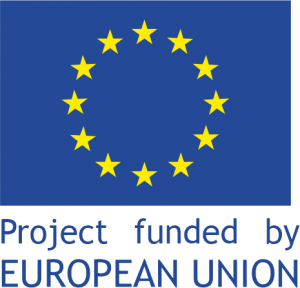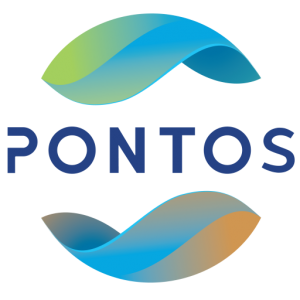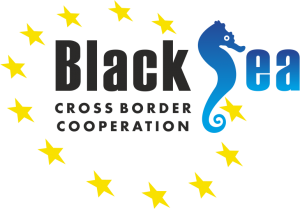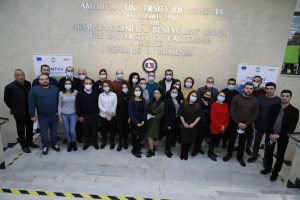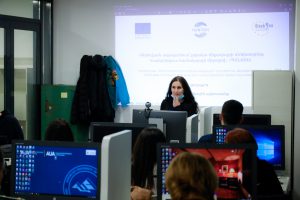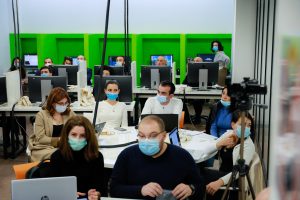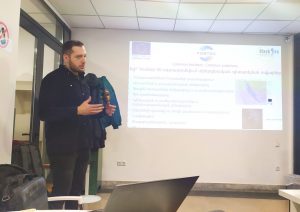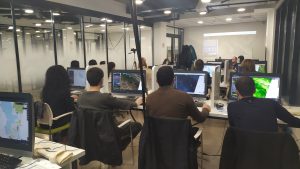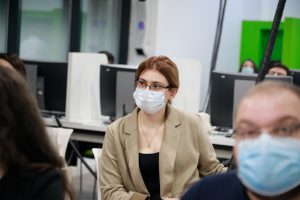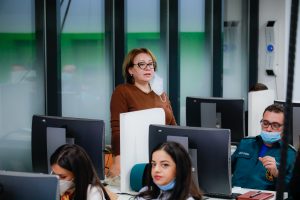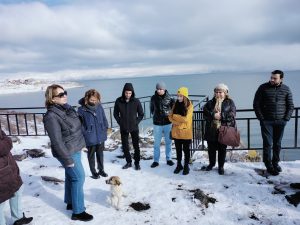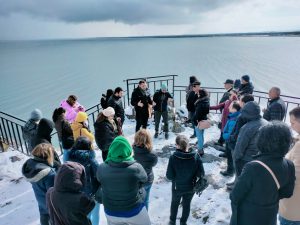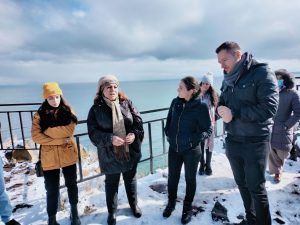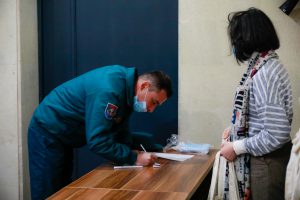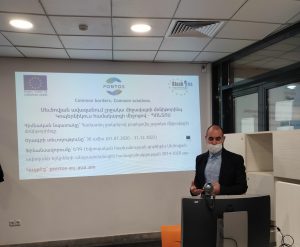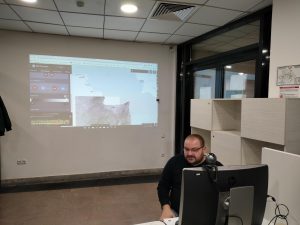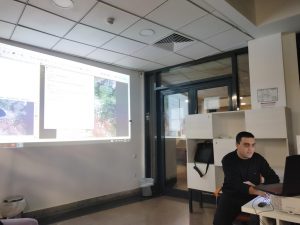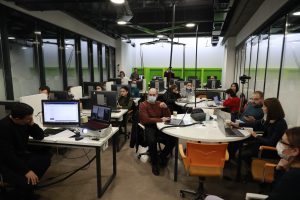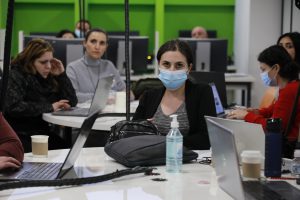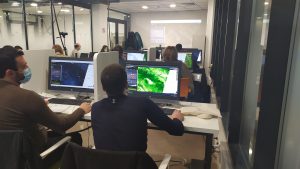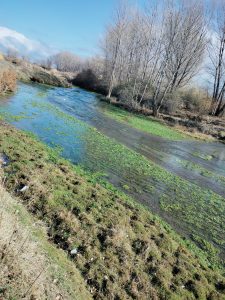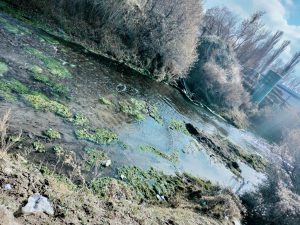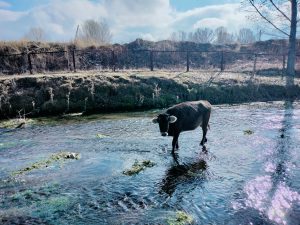YEREVAN, Armenia – In November 2021, the American University of Armenia (AUA) Acopian Center for the Environment and Environmental Protection and Mining Inspection Body of the Republic of Armenia held a three-day training on Earth Observation and Environmental Monitoring for young scientists and practitioners. The training is implemented within the framework of the PONTOS program with EU financing.
The participants of the Earth Observation and Environmental Monitoring training represent national authorities, educational, and research institutions, learning the use of multidimensional and multispectral earth observation tools and products. Some of these will soon be available through the PONTOS platform, offering easy-to-use and easy-to-access free online services for various specialists, including those without technical skills to write codes and algorithms for processing data.
Aghavni Harutyunyan, PONTOS Project Manager at the AUA Acopian Center and AUA lecturer, opened the event with these remarks: “The American University of Armenia plays a key role in Armenia, aiming not only to provide excellent education but also to contribute to the capacity building and development in various areas of Armenia. This is implemented through the AUA Centers of Excellence, one of which is our center, the AUA Acopian Center for the Environment. Through various projects, such as the PONTOS project, we contribute and support the University-Government-Public partnership.”
The training was designed to include theoretical and practical components, including fieldwork. The first two days included an introduction and use of earth observation (EO) tools and applications, such as Sentinel Hub, EarthTrack, SNAP, and Copernicus Open Access Hub, as well as the upcoming PONTOS platform. Dr. Alexander Arakelyan, PONTOS researcher at AUA, made a presentation focused on the use of the EO tools by the participants in their professional activities, how those would contribute to the science-based decision-making and also enable young scientists to combine their field data with satellite data, thereby creating more accurate and comprehensive new knowledge.
The training also touched upon the need to improve the analysis of image data for better results. Field observations and data collection are a few of the most important steps in the remote sensing process. So, on the third day of the training, a field trip was organized to the project pilot area in Armenia, the Lake Sevan Basin, where the team conducted data collection and ground-truthing.
One of the participants, Dr. Lusine Hambaryan, a senior researcher in the RA National Academy’s Hydroecology and Ichthyology Institute indicated that the practical knowledge gained during the three-day training will help her combine the results from laboratory research, the patterns of basic development with space images.
In the end, participants and organizers expressed interest in continued cooperation. The next series of training will take place in Spring 2022 comprising practical work in the pilot area.
The training resources are available using this link.
The Acopian Center for the Environment of the American University of Armenia (AUA), the Environmental Protection and Mining Inspection Body of the Republic of Armenia, and four other partner organizations, together launched the Copernicus Assisted Environmental Monitoring Across the Black Sea Basin-PONTOS project starting from July 1, 2020. The 30-month program is implemented under the ENP Black Sea Cross-Border Cooperation 2014-2020 program’s co-financing.
